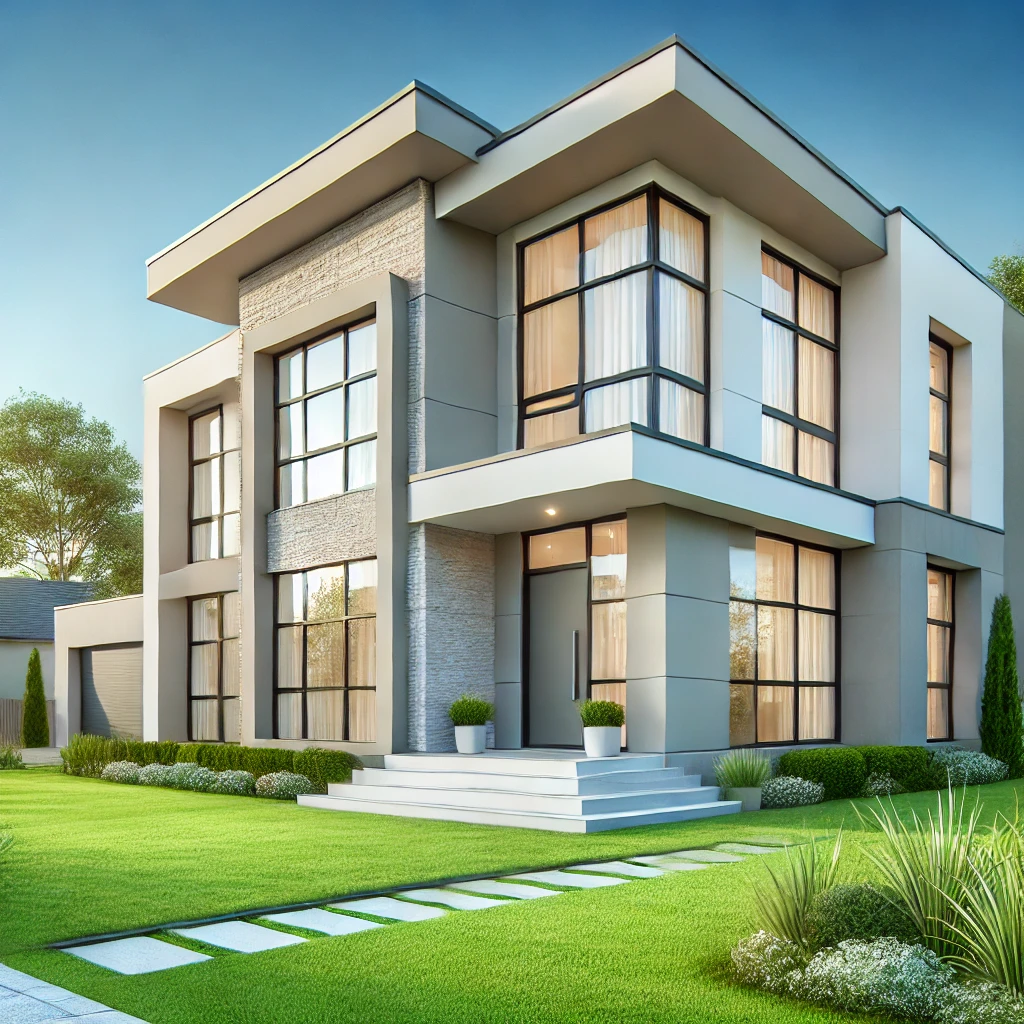New construction homes offer the allure of modern design, energy efficiency, and the opportunity to create a personalized living space. In Seattle’s competitive real estate market, these homes present a fresh alternative to older properties that may require significant updates. But is a new construction home the right choice for you?
While new homes come with a host of benefits, there are also important drawbacks to consider before jumping in. This article goes beyond the typical talking points to explore the true advantages and disadvantages of buying a new construction home—especially in the Greater Seattle area, where market dynamics, price volatility, and local demand add another layer to the decision.
1. Pro: Move-In Ready and Low Maintenance
One of the biggest draws of new construction homes is the fact that everything is brand new. From appliances and HVAC systems to plumbing and electrical wiring, buyers can rest easy knowing they won’t have to worry about major repairs for several years.
- No Immediate Repairs: When you buy a newly built home, you can skip the headaches that often come with older homes, like outdated wiring, old plumbing, or the need for roof repairs. Everything is up to code, and many builders offer warranties that cover major systems for the first few years.
- Energy Efficiency: Most new homes are built with the latest energy-efficient technologies, from smart thermostats to insulated windows and high-efficiency HVAC systems. In Seattle, where sustainability and green living are priorities for many homeowners, this is a significant advantage. Your energy bills will likely be lower, and you’ll have a smaller carbon footprint.
Pro Insight: If you’re looking for a low-maintenance lifestyle, especially in your first few years of homeownership, a new construction home is a strong choice. The reduced need for repairs and updates saves both time and money.
2. Con: Higher Upfront Costs
The price tag for a new construction home is often higher than that of a resale home, especially in high-demand areas like Seattle. Builders know that buyers are willing to pay more for a new home that doesn’t come with the hassle of renovations or repairs, and they price accordingly.
- Premium Pricing: In some cases, new homes can come with a premium of 10-20% compared to older homes in the same neighborhood. This premium reflects not only the newness of the home but also the cost of land, materials, and labor—all of which are in high demand in Seattle.
- Customization Add-Ons: While many new construction homes allow for customization, those upgrades can add up quickly. Choosing premium finishes, upgraded appliances, or custom flooring can significantly increase the final cost of the home.
Pro Insight: If you’re on a tighter budget, keep in mind that while new construction homes often come with fewer upfront renovation costs, you’ll still pay more initially. Weigh the convenience against the potential savings of buying a resale home and making updates over time.
3. Pro: Customization and Personalization
One of the biggest perks of buying a new construction home is the ability to customize the property to your liking. Unlike buying a resale home where you inherit someone else’s design choices, new homes often come with options for buyers to select everything from the flooring to the countertops.
- Floor Plan Options: Many new construction communities allow buyers to choose from several floor plans, meaning you can select the layout that works best for your family. Whether you want an open-concept kitchen, an extra bedroom, or a home office, you can often find a layout that suits your needs.
- Finishing Touches: Builders typically offer different tiers of finishes, allowing you to personalize your home with the exact look and feel you want. You can choose from various types of flooring, cabinetry, countertops, paint colors, and even smart home technologies.
Pro Insight: While customization can add to the price, it’s a chance to truly make the home your own. For many buyers, this ability to personalize is worth the higher cost compared to purchasing an existing home that may need remodeling or updating.
4. Con: Limited Negotiation Power
When buying a resale home, there’s usually room for negotiation. You can haggle over the price, ask the seller to cover some of the closing costs, or request that they make certain repairs before closing. In contrast, builders typically stick to their pricing, leaving little room for negotiation.
- Fixed Pricing: Builders often have strict pricing policies, especially in popular developments where homes are in high demand. While there may be occasional promotions or incentives, such as upgrades on finishes or free appliances, you generally won’t have much flexibility in negotiating the base price.
- Less Flexibility with Contingencies: In a resale transaction, buyers can often negotiate contingencies related to home inspections or appraisals. With new construction, builders usually offer warranties but may not be as open to changes or concessions if issues arise during construction.
Pro Insight: If negotiation is important to you, or if you’re hoping to get a deal, buying a new construction home might not be the best option. Builders often prefer to keep their prices consistent across the development to maintain property values.
5. Pro: Modern Layouts and Smart Features
New construction homes are designed to cater to the needs and preferences of today’s buyers. Open floor plans, smart home technology, and modern design elements are often standard in these homes. This can make your home more functional and in line with current lifestyle trends.
- Open-Concept Living: Many new construction homes feature open-concept layouts, which have become increasingly popular among buyers. This design eliminates the traditional separation between the kitchen, living room, and dining room, creating a more connected and flexible living space.
- Smart Home Ready: Seattle buyers love technology, and many new construction homes come equipped with smart home features. From smart thermostats and lighting to advanced security systems, these homes are designed with tech-savvy buyers in mind. You’ll likely find built-in EV charging stations, smart locks, and other tech upgrades that older homes may lack.
Pro Insight: For those who prioritize modern conveniences and technology, new construction homes offer the latest in smart home integration. You won’t have to retrofit an older home to get these features—they come standard or are easily added during the building process.
6. Con: Longer Wait Times
Unlike buying a resale home, where you can typically move in within a month or two after closing, new construction homes may require a longer wait time. Depending on the stage of construction, you might have to wait months before your home is ready for move-in.
- Construction Delays: Weather, labor shortages, or supply chain issues can cause delays in the construction process, pushing your move-in date further back. In Seattle, where rain can slow down outdoor construction, it’s not uncommon for timelines to shift.
- Phased Development: If you’re buying a home in a new development, be aware that the community might be built in phases. This means that while your home might be completed, you could still be living in an active construction zone for months as other homes in the community are built.
Pro Insight: Make sure to ask the builder for an estimated timeline and be prepared for potential delays. If you’re on a tight schedule or need to move quickly, buying a new construction home might not align with your timeline.
7. Con: Limited Availability in Prime Locations
In areas like Seattle, where space is limited, new construction homes tend to be located in the suburbs or less densely populated areas. This means you might have to sacrifice proximity to the city or public transportation in exchange for a brand-new home.
- Suburban Development: New construction homes are often built in suburban areas like Bothell, Issaquah, or Snoqualmie, where there is more land available for large developments. While these areas are growing and offer more space, they are further from the city center and often require longer commutes.
- Fewer Infill Projects: In Seattle proper, new construction is often limited to townhomes or condos due to space constraints. These homes are more expensive and offer less square footage than single-family homes in the suburbs.
Pro Insight: If proximity to downtown Seattle or access to public transportation is a priority, you may need to compromise on the size and type of new construction home you can buy. Be sure to weigh the pros and cons of suburban living versus staying closer to the city.
Conclusion
Buying a new construction home in Seattle offers plenty of benefits, including the ability to customize your space, enjoy modern conveniences, and avoid immediate maintenance or repairs. However, the decision isn’t without its challenges. Higher upfront costs, limited negotiation power, and longer wait times are some of the drawbacks to consider.
Before making a decision, it’s important to weigh the pros and cons based on your lifestyle, budget, and long-term goals. For some, the appeal of a brand-new, customizable home outweighs the higher costs and potential delays. For others, the flexibility and potential savings of buying a resale home might be more appealing.
In a city like Seattle, where both resale and new construction homes are in high demand, taking the time to evaluate your needs and priorities will help ensure you make the best choice for your next home.





